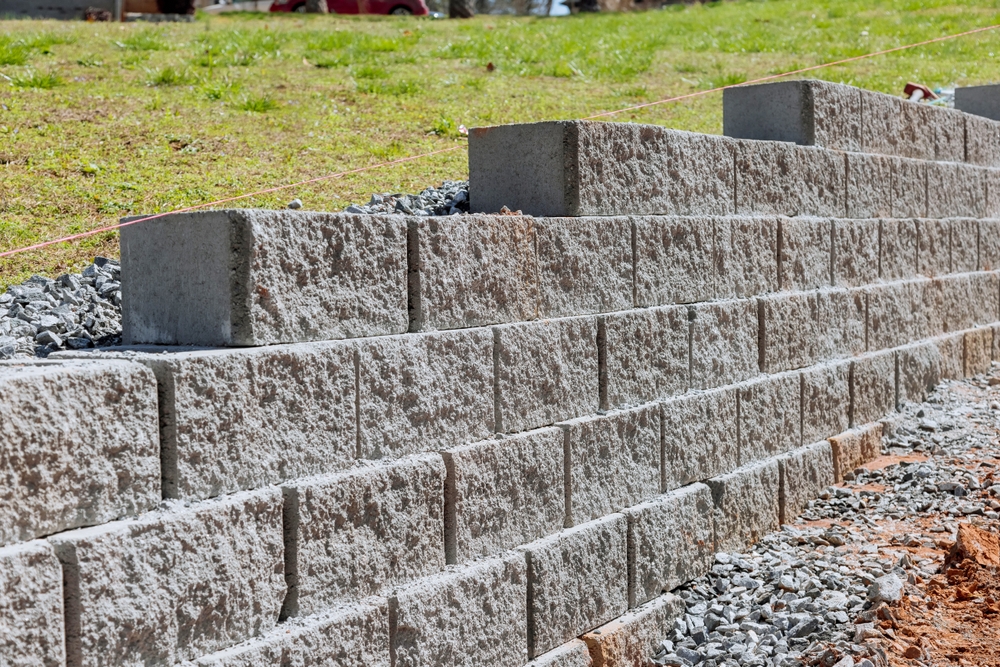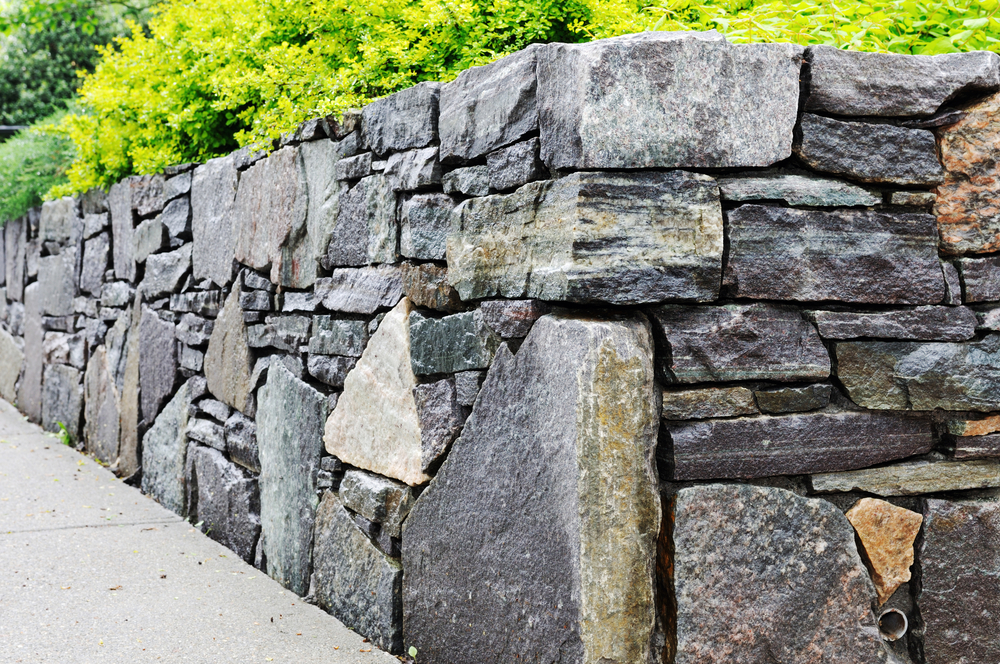Retaining walls play a crucial role in landscape designs, holding back soil and preventing erosion. Among the many available materials for constructing these walls, stone stands out as a popular choice. Specifically, stone retaining walls typically refer to stacked retaining walls—blocks of stone methodically placed on top of one another. This post will provide an in-depth examination of the pros and cons of stone retaining walls, helping potential builders make an informed decision.
Pros of Stone Retaining Walls

Unique Aesthetic Appeal
One of the most prominent pros of stone retaining walls is their distinctive appearance. These walls offer an aesthetic quality that sets them apart from retaining walls constructed of other materials. The natural look of stone seamlessly blends into most landscapes, adding an elegant and timeless touch.
No Need for Heavy Equipment
The installation of stone retaining walls typically doesn’t require large machinery. This means that even in areas with limited access or tight spaces, stone walls can be a feasible option, making them versatile for a range of environments.
Small Footprint
Space constraints can be a challenge when constructing retaining walls. However, stone retaining walls have a smaller footprint compared to many other types. This makes them ideal for sites with limited room, allowing homeowners and contractors to maximize the available space.
Cons of Stone Retaining Walls
Reduced Strength
A notable downside of stone retaining walls is their strength. While it is possible to design these walls to be sturdier, they generally offer less strength than walls made of other materials. This can be a significant consideration for those looking to build taller walls or walls that need to withstand significant pressure.
Higher Cost
Cost is a primary concern for many homeowners and contractors. Stone retaining walls, while beautiful and functional, tend to be pricier than other wall systems. This is due to the higher material costs associated with natural stone and the specialized labor required for its installation.
Expertise Is Essential
Building a stone retaining wall that lasts requires a unique skill set. These walls demand a higher level of expertise than some other wall types. This is especially true when considering the backfill materials needed to reinforce the wall. Using the same methods as you would for a block wall can result in a stone wall that’s not adequately fortified. Hence, it’s essential to work with a contractor experienced in stone wall construction to ensure longevity and stability.
Conclusion


The choice to build a stone retaining wall is significant, requiring careful thought and weighing of both its advantages and disadvantages. Their aesthetic appeal, versatility in installation, and compact footprint are undeniable assets. However, one must also acknowledge their limitations, such as reduced strength, higher costs, and the need for specialized expertise.
If you’re contemplating a stone retaining wall or any other landscaping project and require expertise and guidance, don’t hesitate to contact Natural Environments Corporation today. Our team of professionals is here to help you navigate your choices.
